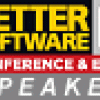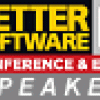|
|
Unintended Consequences: The Case for a Business Case Some painful lessons seem to require periodic re-learning. Lessons about unintended consequences come around again and again, like an ugly pony on a carousel. People familiar with the merry-go-round of implementing change without regard to business consequences recognize these lessons as they reappear. For those new to the project carnival, Payson Hall describes a ride on the ugly pony and how you can avoid it.
|
|
|
|
Information Gathering If your customer interview questions focus too narrowly on a problem that must be solved, you run the risk of missing information that could be critical to a successful outcome. In this column, Naomi Karten says playing detective improves your ability to gather information. To improve the odds of success, it's important to ask questions from multiple perspectives—and to pay attention not only to the customers' response, but to how they say it as well.
|
|
 |
What's on Your Not-to-Do List? Drawing up a to-do list sounds like a logical starting point when you want to prioritize your workload. But if you have an extra-long list of tasks, the list you should start with is the not-to-do list. Doing so forces you to take an extra hard look at what you're doing and if you should be doing it. Learn more about Johanna Rothman's not-to-do list, how it helps you stay focused on the most important tasks, and how it inevitably helps you maintain your value to the organization.
|
|
 |
Before 'Z' -- A Simple Secret for Process Improvement Improving your process plan is as simple as ... well, it's a secret that Payson Hall wants to share with you in this week's column. This bit of advice has helped numerous companies and everyone involved in the process. Find out how Payson, formerly part of the development community, became one of THEM and learned this great secret.
|
|
 |
Hold That Decision In the rush to complete a project, teams often make hasty decisions, including decisions about which features will be included when the product is released. Rather than making quick decisions, a team should defer a critical decision. Especially if they might learn more throughout the project that will help them make a better decision. In this week's column, Mike Cohn explains the importance of taking advantage of the new knowledge project teams acquire and how this allows them to make better decisions by deferring them.
|
|
|
|
Big Bang, Large Crater Miracles seldom happen in the software industry, and that is what Big Bang transitions bank on. Utilizing such volatile quick-switch tactics often leave you with nothing more than a costly large crater, so why do some organizations still consider it an option? In this week's column, Peter Clark recognizes the potentially devastating effects of the approach and calls to disarm the process. But if you find yourself having to use the Big Bang, Peter gives tips on how to carefully avoid an accidental detonation.
|
|
|
|
Keeping Secrets Test data has long been a challenge for testing; privacy legislation, identify theft, and the continued trend towards outsourcing has made it even worse. Just establishing and maintaining a comprehensive test environment can take half or more of all testing time and effort. In this column, Linda Hayes adds in the new and expanding privacy laws that inevitably limit your testing options. Yet from the quagmire of laws and company standards, better testing can emerge.
|
|
|
|
Thinking Inside the Box The problem with urging outside-the-box thinking is that many of us do a less-than-stellar job of thinking inside the box. We often fail to realize the options and opportunities that are blatantly visible inside the box that could dramatically improve our chances of success. In this column, Naomi Karten points out how we fall victim to familiar traps, such as doing things the same old (ineffective) way or discounting colleague and teammate ideas. Thinking outside of the box can generate innovative and ingenious ideas and outcomes, but the results will flop when teammates ignore the ideas inside the box.
|
|
 |
Preventing Late Tasks from Creating Late Projects We like to think that being late on one task isn't so bad because early and late completions will average out over the course of an entire project. If you flip a coin 1,000 times, it will land on heads about 500 times and on tails about 500 times. If your project has 1,000 tasks, about 500 will finish early and about 500 will finish late, right? Wrong--and many project plans are sunk by this common misperception.
|
|
 |
Watching Testers in Action Why wait to see your candidate work? Implement an audition into the interviewing process and add dimension to your candidate's resume. In this column, Johanna Rothman discusses how you can increase the effectiveness of an interview by implementing a well-planned audition. Whether this audition takes place over the phone or in person, you'll gather a richer perspective of the candidate's capabilities and how easily the applicant can adapt to your working environment. Put your candidate's words to the test; the results of an audition may break the tie between two superb applicants.
|
|

